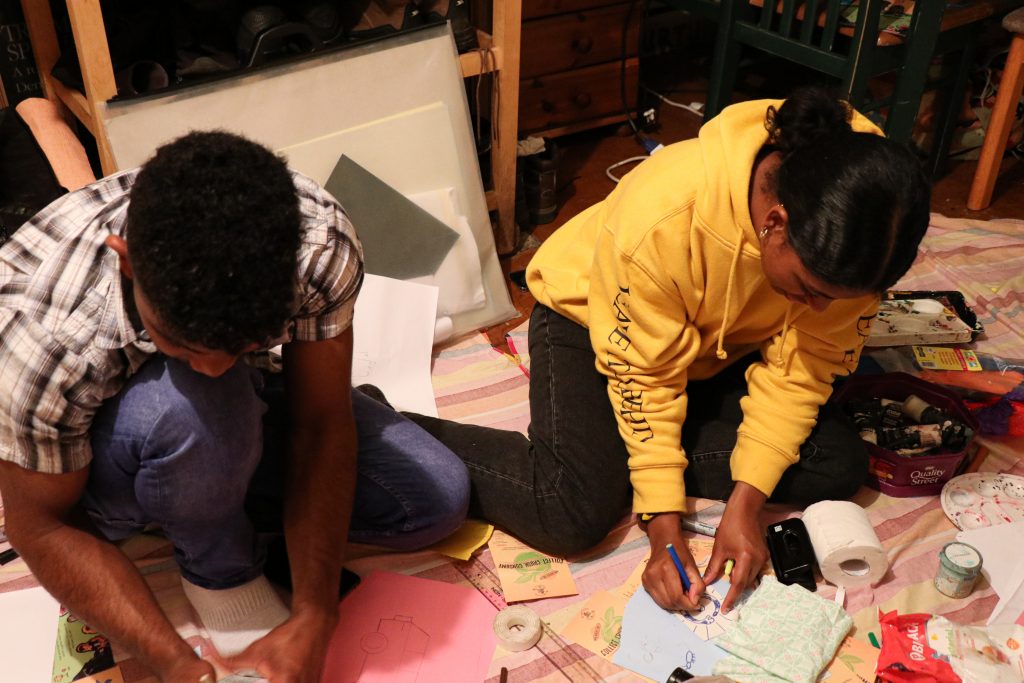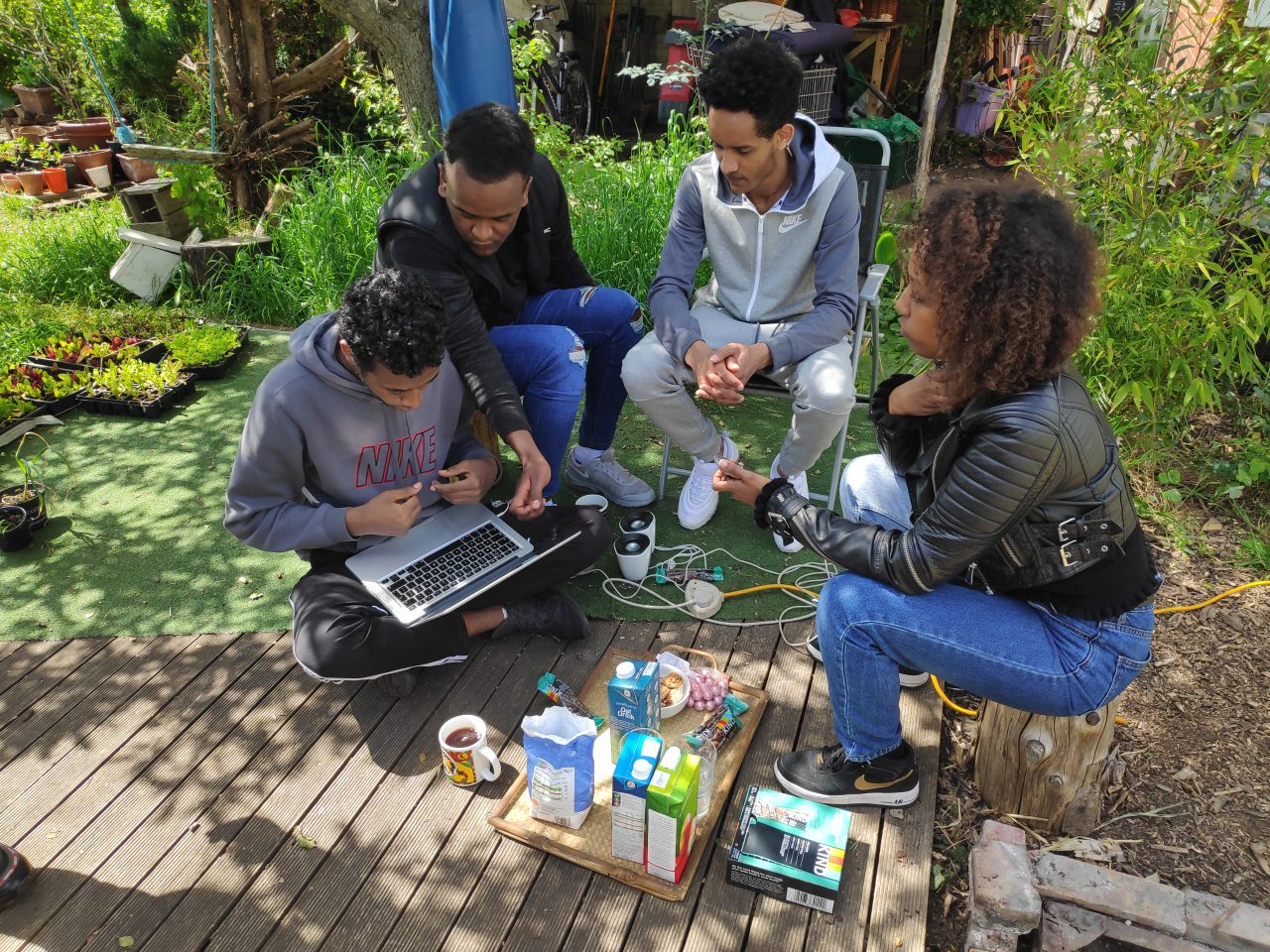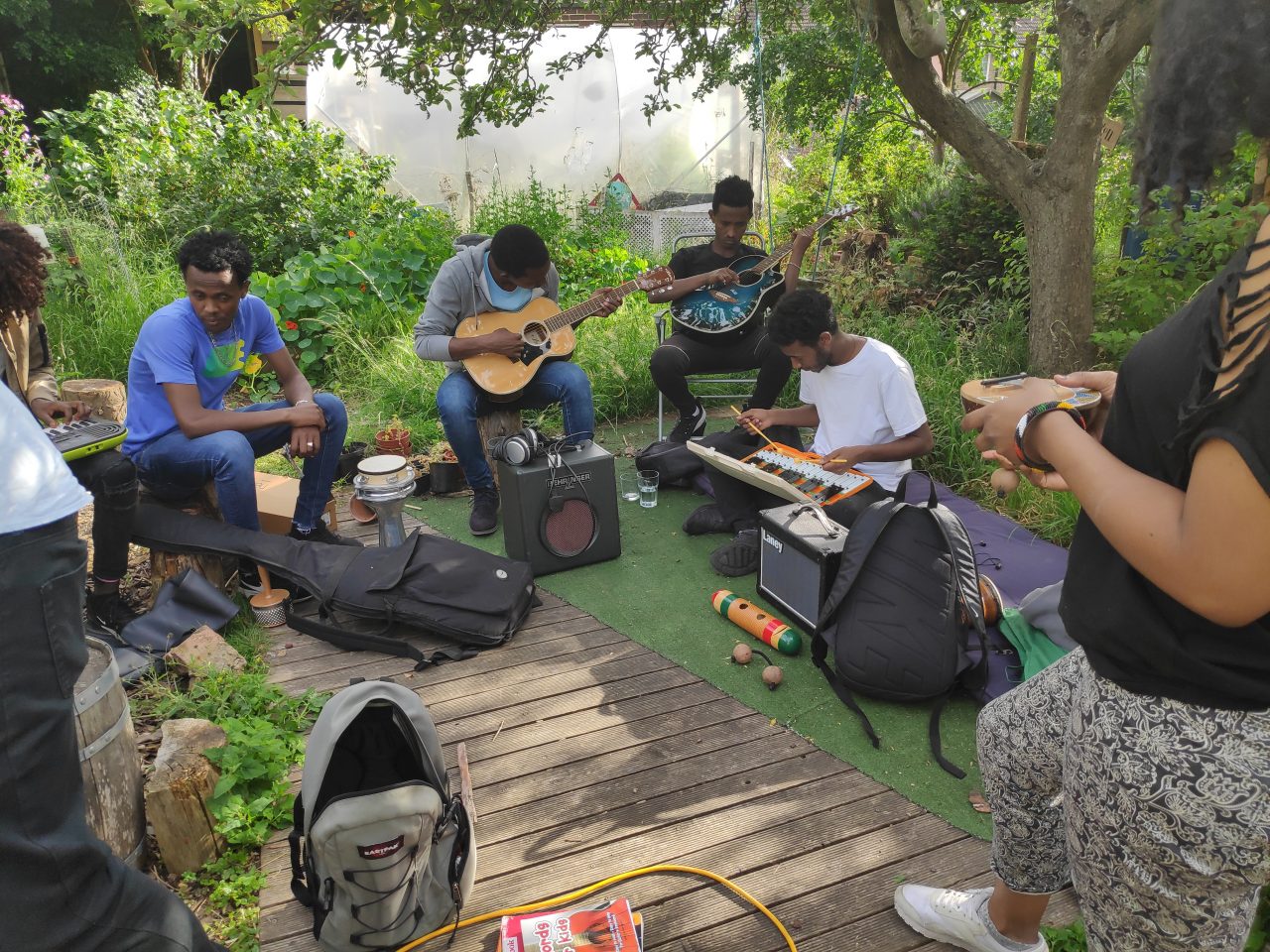
“I thank God for all those people who are around and helping me”
This article is part of our Voices of the Economy series. The project brings together the economic experiences and opinions of people from a range of different backgrounds and showcases voices which are not heard as often when we talk about the economy. To find out more and share your own story, click here.
This article was co-written by Atsede, a young asylum seeker, and Mona Bani, co-director of May Project Gardens.
May Project Gardens works mostly with unaccompanied minors (children under the age of 18 who arrive in the UK alone).
Through their youth programme Hip Hop Garden, they try to understand what being a young asylum seeker or refugee really means; what the lives of these young people are like as a consequence of their legal status and being far from their homes and families.

The majority of unaccompanied minors (children who seek asylum in the UK by themselves without family) are male. This has many cultural and political reasons.
For example, boys are more likely to flee forced military subscription or the fear of being sent to war; many families are more inclined to send their boys ahead to make money or fend for the family back home; in some countries boys have more ‘freedoms’ to travel or make their own decisions without family or state interference; or they have greater pressure on them to provide financially for their families. At May Project Gardens, over 90% of the young people we work with are boys.
However occasionally we meet young girls, who despite all these odds have also fled their countries and travelled to Europe by themselves. One of these brave young girls is Atsede.
Here she speaks about the horrors she left behind; the fears she lives with but also of the positive aspects of building a life in London, where she finally feels safe.
She casts a light on all the amazing, hardworking, mostly third sector organisations, who are supporting young refugees and those seeking asylum in London, usually on very limited resources and no state backing. They offer everything from food, legal advice, education, therapy and other crucial services, which our government is failing to provide to the most vulnerable children.
*
When I left Eritrea I was very young. My journey to the UK was so long and difficult. During my journey, I travelled through a lot of countries and I met a lot of people from different backgrounds.
I’m not good with believing because my journey was hard to believe. When something bad happens everyone saves only themselves. If you don’t save or protect yourself, no one saves or protects you. I still don’t know sometimes how I got here; where or when anything happened, or what to believe. But I’m trying to live a normal life and I’ve learned to build strength from the past and I want to be stronger than before.
When I arrived in the UK the first city I settled in was London. When I entered London I felt happy and scared at the same time. I went directly to the police station and they took me to the social services’ offices.
The people I met there were very kind and helpful. I felt safe when I talked to them. My social worker is kind. She cares about my safety and well-being. She always puts me in a good mood, makes me feel safe and gives me hope.
I’m happy to live here because everything is different from where I lived before. But I’m always thinking about my immigration case, because if I lose my case, and don’t get granted the right to remain here, I don’t know what I can do or what will happen to me. I’m constantly worrying about losing my case.
I’m going to different youth projects for refugees now, such as South London Refugee Association (SLRA), Young Roots, Daaro Youth Project and May Project Gardens. They’re good at caring and supporting. I’m learning so many new things. At the SLRA, I study English, Maths, ICT, play different games, do exercise and sports, photography and art workshops, acting, T-shirt printing, go on trips together as a group, have food and talk together.
I also study English, Maths and ICT at college. When I started it was hard to understand English but I’m watching English language lesson videos on Youtube and my foster mom helps me a lot and I’m really practicing. So now I’m better than before. My foster mom is very kind and loving. She takes care of me and helps me in different ways. I don’t know how to express her kindness or how I feel about her, but what I do know is that I’m in a safe place and I like them very much.
When I go to the SLRA, I feel happy and I have fun. The people are lovely and friendly. I like spending time with them and learning about their experiences and I’ve made some friends there. I thank God for all those people who are around and helping me.
I think I want to become a nurse, but I’m not fully decided for now because I like a lot of different skills. But no matter what I pursue, I hope I learn well and get a good job so I can live properly without worries.

Kids like Atsede rely heavily on voluntary sector services to build up their lives here in the UK. We need as much support as possible to continue to fund this work and apply pressure on our government to care for vulnerable children like Atsede when they arrive here, hoping for safety.
Actions you can take include:
- Writing to your MP and publicly holding them to account on these issues
- Attending protests & signing petitions calling for changes to hostile immigration policies
- Offering money, time or skills to frontline, grassroots organisations. Search for projects local to you so you can actually see the work they do.
- Becoming a mentor or tutor to a young refugee / asylum seeker
- Offering housing through organisations like Refugees at Home
- Donating to ethical funders like Help Refugees
- Becoming a foster carer
If you want to support our holistic programme of creative workshops, food, English language, paid work experience, residential trips, community garden sessions, mentoring and crucial community building, go to www.mayproject.org



